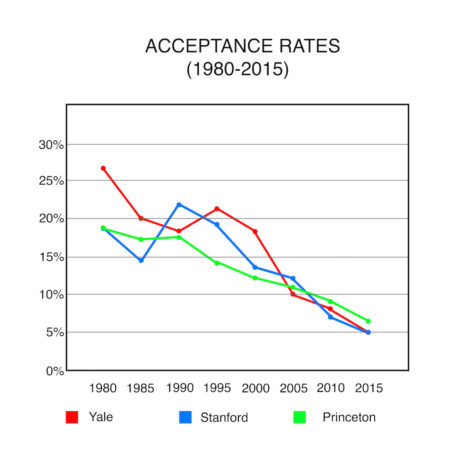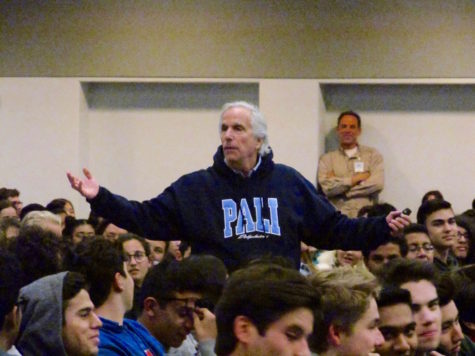Junior AcaDepression
Juniors face an inordinate amount of academic pressure.
Junior year: The year of terrifying, life-altering decisions. The grade in which students are pressured to figure out what colleges they want to attend, what careers they are most interested in and how they are going to achieve all of these lofty goals. In sophomore year, you are told that you have plenty of time to figure out what you want to do. Suddenly in junior year, the conversation shifts. People expect you to have everything mapped out.
Junior year is widely considered the most challenging year of high school due to the weight it holds in college admissions. The burden students face at this time becomes increasingly apparent as academic pressure builds.
It is a nerve-racking time for students and their families. The standards students are being held to are only getting higher. In past generations, stress on students to succeed in school and go to college was not nearly as prevalent as it is now. At this point in time, not only is a student feeling the pressure to achieve their individual goals, but also to satisfy the growing expectations that their parents have for them.
Most students can remember a time when their parents pressured them for academic purposes, whether it was by comparing them to older siblings or their younger selves. Most parents fail to realize that the admissions process has radically changed since they were the ones filling out applications — and that getting into any college at all, let alone a dream university, takes a lot more effort than it did in previous decades.
 For example, college acceptance rates have plummeted, causing many students to worry that they might not be the one out of 12,500 applicants to be accepted into college. Students are finding that, compared to previous years, there is a greater emphasis on going to college and how it is directly associated with the generalized idea of “student success”. In turn, there has been a spike in college applicants (hence the drop in acceptance rates). According to Spark Admissions, undergraduate acceptance rates at highly selective schools such as Yale and Stanford have dropped from roughly 20% in 1980 to nearly 5% as reported in 2015.
For example, college acceptance rates have plummeted, causing many students to worry that they might not be the one out of 12,500 applicants to be accepted into college. Students are finding that, compared to previous years, there is a greater emphasis on going to college and how it is directly associated with the generalized idea of “student success”. In turn, there has been a spike in college applicants (hence the drop in acceptance rates). According to Spark Admissions, undergraduate acceptance rates at highly selective schools such as Yale and Stanford have dropped from roughly 20% in 1980 to nearly 5% as reported in 2015.
While “try your best” is a commonly-touted piece of advice, sometimes one’s best effort is no longer enough. In the past, putting effort into every class and pursuing an extracurricular, such as a sport or club, may have seemed like an impressive load for the average student. However, it is now completely normal to see high schoolers stressing over as many as five Advanced Placement classes and participating in a myriad of clubs, sports and community service in an attempt to bolster their resumes.
Regardless of the effort students are putting into working for a bright future, it’s no secret that parents have high expectations for their children — in many cases, higher than what children believe they are capable of achieving.
High school students often find that maintaining healthy relationships with family is difficult when conversations focus mainly on academics and college acceptance. Junior Jasmine Perry is no stranger to this dilemma. Being consistently compared to her successful older sister has put a strain on her and has led her to believe that her best is simply not sufficient.
“My sister sometimes comes to my defense by telling my parents to back off,” Perry said, “but she often also tells me to get my sh*t together.”
Not only does living in the shadow of an apparently more successful sibling deteriorate a bond between sisters, but it also causes tension with parents.
“They don’t know what to talk to me about besides saying you have to do this and that and blah blah blah, all for college. It really changes how you are emotionally,” Perry commented.
While many students can agree that parents put an immense amount of academic pressure on their children, junior Claire Spector holds a different perspective. “Honestly, where my parents want me to go to college doesn’t really influence me,” Spector said. “While my parents do have high expectations for me, I never really feel any pressure from them about where I should go to college. They just want me to go where I feel comfortable and to keep my opportunities open.”
Spector’s mother attended one of the most acclaimed schools in the country, Stanford; it is comforting to know that only a portion of the high school demographic undergoes monumental stress that is rooted in their parents’ own success.
Adding to the already massive amount of pressure students are subject to is the easy access that both students and parents have to academic grades. This is a significant shift in how grades are reported, from the monthly report card to unlimited access to online gradebooks at any time. This allows parents to receive notifications about any missed assignment or bad grade and how it is affecting their students’ academic performance.
Palisades Charter High School utilizes the platform Infinite Campus to give students and parents access to their grades. Although on paper this may seem like an improvement in the way the school system is distributing grades, it does have its disadvantages.
Junior Adam Toubian explained that his parents are unsatisfied with anything lower than an A when it comes to his grades. When asked if he feels that there is more pressure on him as a student to live up to unachievable expectations with the use of Infinite Campus, he responded affirmatively and without hesitation. “Yes, of course! With IC, your parents could know about a bad grade before you do. Nothing is scarier than coming home to an angry mom holding a printout of your grades,” Toubian said.
Previous generations have not had this same constant access to grades. This easy availability has drastically increased the amount of academic pressure placed on students, thereby causing stress levels to skyrocket.
This advancement in technology, coupled with the drop in college acceptance rates as of recent years has contributed to the increasing amount of pressure high school students are subject to.



